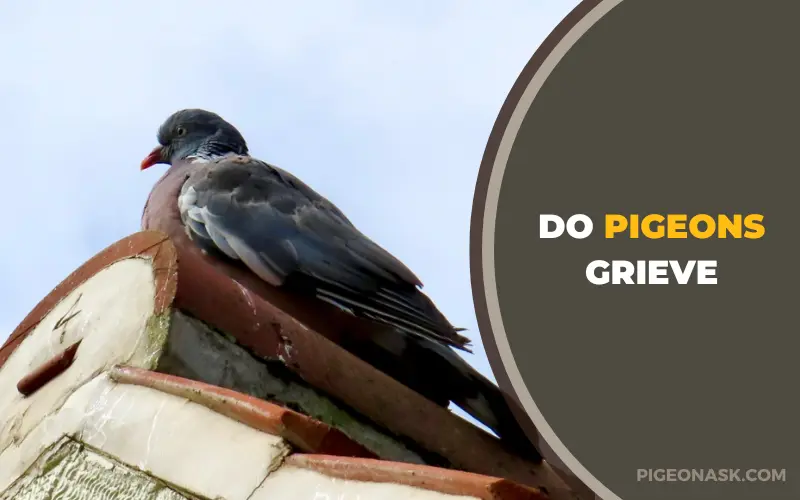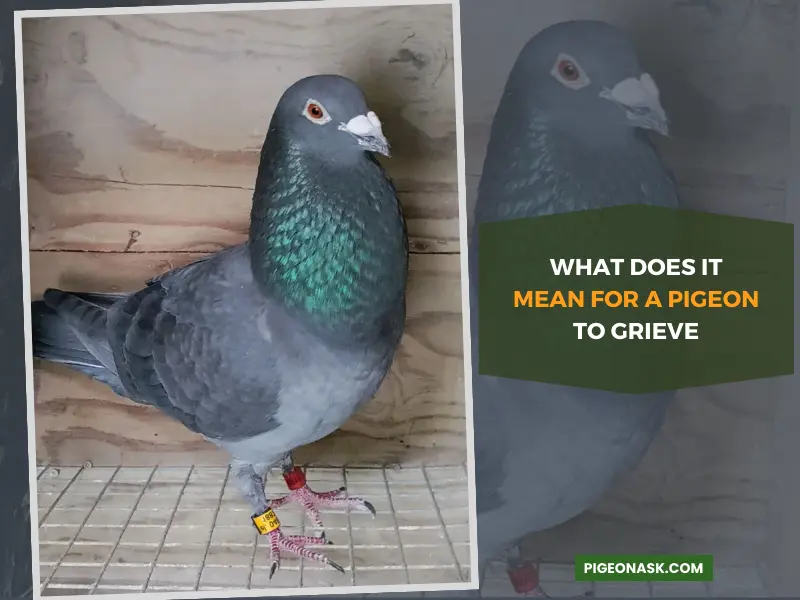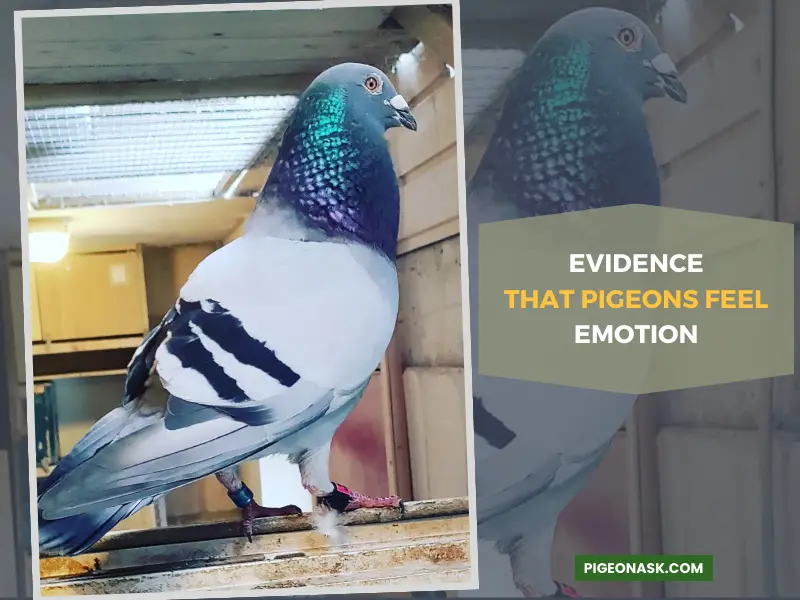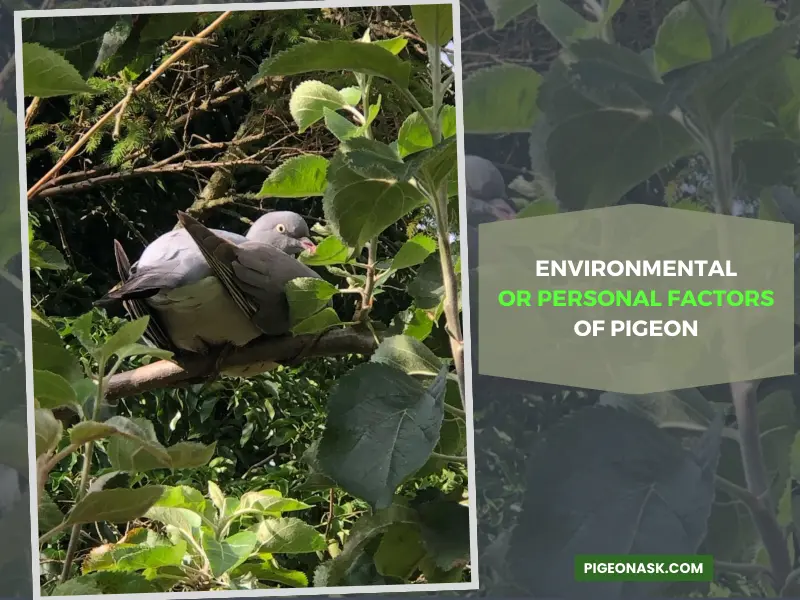Do Pigeons Grieve? Pigeon Emotion Analysis
Pigeons are one of the most intelligent members of the avian species. But does that intelligence come with emotions?
Do pigeons grieve or feel depressed? To get directly to the point, yes, there are scenarios where pigeons have shown the capability to feel grief and sadness. But their interpretation and showcase of grief might not be similar to how we humans show it.
There are certain signs and behavior changes that may indicate a pigeon is grieving. In this article, we will go through just that, so make sure to keep on reading!

Interested in similar topics on pigeon behavior:
What Does It Mean for a Pigeon to Grieve?
To understand how pigeons or any animals grieve, we need to let the concept of human grieving go. Animals don’t have a highly developed brain like ours that will showcase the complexity of going through sadness.
No, when pigeons grieve, they will show changes in their natural behavior and responses. You won’t see tears falling from their eyes or vengeance toward their enemies. That’s not how their emotions work.

When a pigeon is grieving, it will show the following signs –
Sudden Change in Behavior
A grieving pigeon won’t be following the natural behavioral pattern of pigeons. To notice this change, you will need to look out for every minute detail in a pigeon’s behavior. Check out our guide on pigeon behavior for that!
The common changes a grieving pigeon shows are decreased curiosity and activities, lack of interest in food, or change in communication tone.
In short, the pigeon will be doing something that you haven’t seen it do beforehand, and it will be very out of character of the bird. The changes in behavior can be small to significant, depending on the significance of the grief.
Social Withdrawal
Pigeons are quite social and like to interact with other pigeons, birds, and even humans. But when they are grieving, much like humans, they like to stay alone.
So, if you find a pigeon just shutting down everyone and showing reduced to no interest in any socializing gestures, then this can mean that the bird is grieving.
Sadness in Their Calls
In some cases, it has been noticed that birds like pigeons will slightly alternate their cooing calls in the case of grief and sadness triggered by a great loss.
Some suggest this is to let other pigeons know that the pigeon is now grieving.
Not Leaving the Presence of the Deceased
One of the biggest causes for a pigeon to grieve is to mourn the death of their partner or children.
In that case, they may express their grief by not leaving the deceased body and remain near them as long as they can. This is an attachment-based response from pigeons.
They will eventually dispose of the body or eggs out of the nest as a decomposed body may attract predators and diseases.
Looking for the Deceased
Sometimes, pigeons may start showcasing their grief by staying in denial and being restless. They won’t accept that their partner is gone and will start to go out and look for them in the places they were last seen or a place they often visited.
See our in-depth “Pigeon Behavior” article to learn what these urban birds eat. We cover their dietary habits and nutrition.
Is there Evidence that Pigeons Feel Emotion?
If you are looking for a scientific explanation regarding whether pigeons feel emotions or not, then there are some studies that compare the brain structure of the bird with mammals that suggest they may have the properties to experience emotions.

Here are some factors that can be labeled as evidence for pigeons having the capacity to experience different emotions –
Amygdala in Brain
The part of the brain that is labeled as the processing center of the brain is Amygdala. This is a common brain component among mammals that allows them to feel different emotions.
Pigeons also have this part included in their brain structure. This is a major indication that pigeons are capable of feeling emotions.
Exceptional Memory
The ability to return home after traveling long distances is why pigeons were chosen and bred to be messenger birds. They are able to do that because they have a phenomenal memory that allows them to remember their destinations.
This means they are also able to remember situations, bonds, and certain memories, which can trigger certain emotional responses from these birds.
Distress Over Social Bonds
Pigeons are known to be social birds and are monogamous, meaning they are paired for life.
When one pigeon is separated from their partner, they have shown distress, behavior which suggests that they are able to harbor emotions for one another.
Do Pigeons Grieve When Another Pigeon Dies?
There is strong evidence that suggests that pigeons may grieve after the loss of their partner. If a pigeon belongs to a social group or flock, then the flock members may also show signs of grievance.
But the loss of partners and eggs/babies is when pigeons show their grievance openly. The most possible explanation for a pigeon to grieve for another pigeon is if they had a close bond.
What Do Biologists and Researchers Say About This Behavior?
There have been multiple studies and theories regarding the emotions of animals, and pigeons are no exception to this. That being said, there is still not enough data to come to a final conclusion regarding this behavior.
Observations from biologists and researchers about this topic can be debatable but should be considered a variable statement. Here are some that may pique your interest:
Dr. Rupert Sheldrake has suggested the idea of morphic resonance, where he interpreted some pigeon behaviors to be a sign of grievance after the passing of its mate.
There is also the study of Dr. Marc Bekoff, who proposed that pigeons and other animals can express emotions and sorrow after witnessing loss or death. He also suggested that the nature of these emotions may differ from mammals.
What Environmental or Personal Factors Prompt This Behavior?
When it comes to a pigeon’s grievance, there are a lot of factors that may trigger certain reactions.

Bond for Each Other
While the feelings of pigeons and the feelings of humans aren’t the same, we believe that the deeper the bond a pigeon feels with the other, the higher the level of grief will be.
This can also be related to the duration of the bond. And this is especially true for babies.
In a lot of cases, a pigeon won’t show much concern for the new egg it just put out. But when that egg turns into a baby, the care would grow significantly, and so would the loss.
Observation in Social Settings
If the pigeon is placed in a social hierarchy where he/she witnesses care and love among pairs, it may develop similar affection traits. This is due to the fact that pigeons often rely on observational learning, especially when they are in a group.
Stress and Health Factors
This is quite rare, but sometimes, stress or sickness can lead to a pigeon showing signs of depression and grief.
Conclusion
We all grieve for the ones we have lost and loved the most, and pigeons don’t share the same brain complexity and emotions are no exception to this feeling.
So, if you ask us, ‘Do pigeons grieve?’ The answer would always be yes. That’s why we believe that this creature is not only beautiful and majestic, but also compassionate and emotional as well.
If you like this article and want to see more behavioral analysis like this, make sure to like our content on Facebook, Pinterest, and Twitter, and give a follow!
